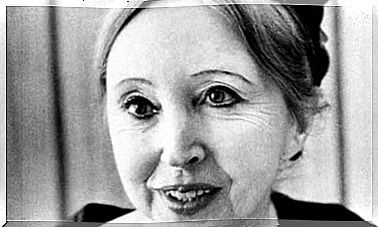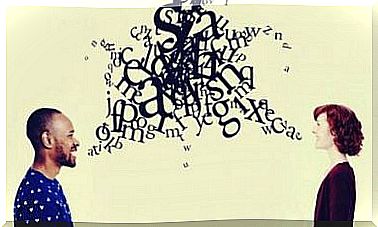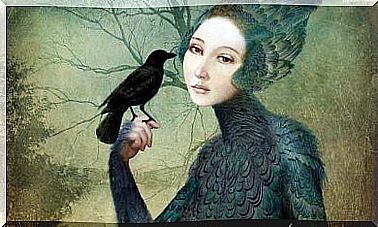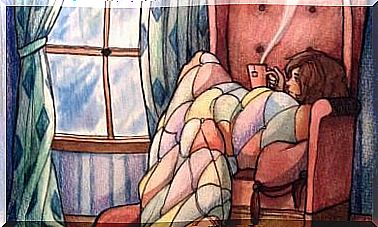Difficult Relationships: How To Reinterpret Your Story?

We are social beings. It is very complicated, not to say impossible, to develop a healthy life without relationship with anyone. As children, we socialize and are part of smaller or larger groups that can change and expand over time. Then give way to relationships of all kinds, including difficult relationships.
Who hasn’t experienced a strained relationship? At the family or professional level, even in a couple relationship, which can become difficult at a certain point. Faced with this, we have two approaches. We may think that these people appear in our lives as obstacles. But we can also go a little further and perhaps see them as challenges.
Make no mistake: life is a constant challenge. As humans, we go through stages, cycles and relationships. When people interact with their respective backgrounds, personalities, temperaments, present circumstances and dreams for the future, it is almost a psychochemical experience. She is quite ambitious, very promising, but it does not always go well.

Sparks or combustion
Usually when we start a relationship with someone, whether romantic, professional, family, or platonic, we all want to feel those sparks that make us feel alive, loved, admired, and respected. But the truth is, a lot of times the sparks turn into pure combustion, and that’s not really what we’re looking for.
Some of our relationships are getting difficult. And there doesn’t seem to be much we can do about it. Tensions often give way to more difficult attitudes and even verbal confrontations. Often times, we tend to avoid these people by not escalating the conflict. But we can’t always do it.
Another way to deal with difficult relationships
If we look at literature or cinema, we discover that each protagonist has his own dynamic character, sensitive to the evolution of the plot. Conflicting situations then arise, generally caused by another character, antagonist of the first. These antagonists challenge the protagonist’s point of view by placing them in situations that prompt them to deploy and improve their resources and skills.
Life is not much different. If we disguise ourselves as protagonists and are able to glimpse who our antagonists are and what challenges they present to us, we can begin to overcome the tension and grow.
Victims or heroes of difficult relationships
When faced with situations posed by difficult relationships, we all have two paths. We can lament and feel victimized by our antagonists. Or we can look for a solution that gives us power. This is not a confrontation, but rather an inner work that reveals the variables or factors that have led us to this situation.
Insecurity is not good company in difficult relationships. Starting with appreciation and respect for oneself is the best way to take this hero’s path. Sometimes a phrase like “ if you keep talking to me like that, I’m going ” reflects a powerful and very courageous attitude. Our antagonists have power over us precisely because they attack us where it hurts.
Understand and heal our reactions
A very important part of our own psychological development is understanding, healing and changing the responses to our emotional wounds. Many therapists claim that we attract people who have the best and worst traits of our parents.
There is a reason for this. It is an unconscious reaction to the secret need (even for ourselves) to solve problems that could not be solved with our parents. In many cases, this is symbolically about winning the admiration and respect of a critical and stern parent.
If we observe that our difficult relationships are repeated with authority figures, the antagonists in our life can play the role of the dominant parent that we have never been able to satisfy.
This antagonist game is a resource that is used very successfully in personal development support sessions. It is a personalized exercise, where we find our character and our antagonist. The difference with literature is that our antagonists are not demonic or evil by nature. They are usually people like us, with their learned fears, hopes, emotions and behaviors. Fragile… and at the same time weak.
The teachers of patience
If, in the context of difficult relationships, we decide to take the hero’s path, we will begin to see our antagonists as our true teachers of patience, courage, compassion, flexibility …
In fact, we can use it to strengthen and improve our character and our emotional muscles. If we work on these aspects, we will be able to develop and improve the sleeping areas. Forgotten or ignored resources.

Powerful questions
Coaching addresses many important issues. And when it comes to dealing with difficult relationships and doing it from that perspective, there are things we can do for ourselves. These are questions that expose our own capacity for discernment.
If we want to play writing the book of our own life, we will analyze the characters in it. We will wonder who our current antagonists are and what makes them so difficult for us.
If we had written this story ourselves, we would be wondering why we chose the character in question. Normally, antagonists are created to get a more evolved version of the protagonist in the story.
Another question that will help us manage difficult relationships will be what skills or virtues can help us overcome this challenge. In coaching, we manage a long list of virtues, such as assertiveness, resilience, courage, compassion, patience, self-awareness …
If you’re ready to be the author of your own story, you might want to sit down and rewrite your own script first. Observe your life situations and difficult relationships from a higher level, that of the screenwriter. It will always give you a better perspective than that of the actor in the spotlight.










